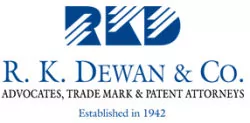Multinational Pharmaceutical companies are often accused of exorbitant pricing, using surreptitious ways to extend the patent protection for their drugs (read – ever greening) etc. In an attempt to prove such accusations incorrect GSK, a leading pharmaceutical Company has recently announced that it will stop filing for patents in less developing countries thereby allowing the generic manufacturers for such countries to make cheap copies of their drugs and increase its access among the public.
As for its plan for the middle income countries, GSK aims at filing patents in those countries but will charge a small sales royalty thereby allowing for sale of original drugs at a lesser price. This development is a cause for celebration for the countries falling in the abovementioned categories but GSK has expressly specified that it will continue to seek full patent protection in countries like India, China and Brazil. It has further announced that it will allow its competitors to develop upon its cancer drugs through the UN backed Medicines Patent Pool.
This is a philanthropic move by GSK and is an example of a corporate engaging in a responsible behavior and addressing the access to medicines problem which has been raised time and again by several NGOs, private organizations and was also the subject matter of Doha declaration. One can only hope more corporates will follow the suit.
The content of this article is intended to provide a general guide to the subject matter. Specialist advice should be sought about your specific circumstances.

